1989 Toyota 4Runner Tires & Services
Get Started
Complete Auto Care for Your 1989 Toyota 4Runner
-
TIRES FOR YOUR 1989 Toyota 4Runner View Tire Info GET TIRE PRICING
-
REPAIR FOR YOUR 1989 Toyota 4Runner View Repair Info SCHEDULE REPAIR
-
MAINTENANCE FOR YOUR 1989 Toyota 4Runner View Maintenance Info SCHEDULE MAINTENANCE
-
OFFERS FOR YOUR 1989 Toyota 4Runner Limited Time Tire Offers VIEW ALL COUPONS
1989 Toyota 4Runner Tires
Recommended Tires | Tire Information
1989 Toyota 4Runner Tires Sizes, Speed Ratings, and Inflation
Not sure about your 1989 Toyota 4Runner tire size? Use the following chart to find information on tire size, speed rating, and inflation.
| Trim Level | Speed Rating | Inflation in PSI F/R | Tire Size |
|---|---|---|---|
| 1989 Toyota 4Runner DLX* | None | 26 PSI/29 PSI | P225/75R15 |
| 1989 Toyota 4Runner DLX* | None | 29 PSI/29 PSI | 31x10.50R15LT/C |
| 1989 Toyota 4Runner SR5* | None | 29 PSI/29 PSI | 31x10.50R15LT/C |
| 1989 Toyota 4Runner SR5* | None | 26 PSI/29 PSI | P225/75R15 |
|
1989 Toyota 4Runner DLX* Speed Rating: None Inflation F/R: 26 PSI/29 PSI |
|
1989 Toyota 4Runner DLX* Speed Rating: None Inflation F/R: 29 PSI/29 PSI |
|
1989 Toyota 4Runner SR5* Speed Rating: None Inflation F/R: 29 PSI/29 PSI |
|
1989 Toyota 4Runner SR5* Speed Rating: None Inflation F/R: 26 PSI/29 PSI |
* Note: these models have different tire sizes depending on vehicle options.
Recommended Tires for Your 1989 Toyota 4Runner
What tires are best for a 1989 Toyota 4Runner? Check out the following tire brands and types.
 Destination LE3
Destination LE3
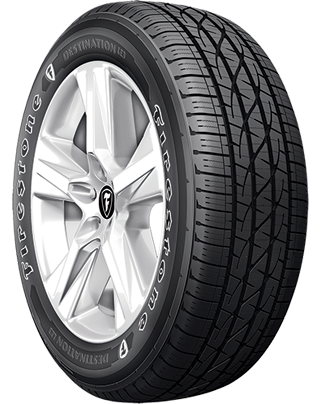
- No warranty
- All-Season
- Light Truck Tires
 Destination M/T2
Destination M/T2
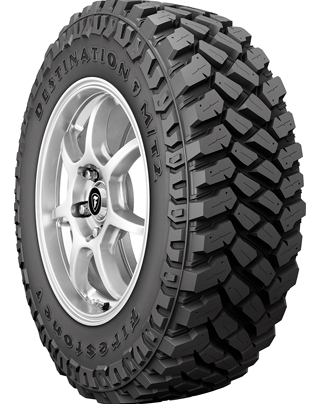
- No warranty
- All-Season
- Light Truck Tires
 Destination X/T
Destination X/T
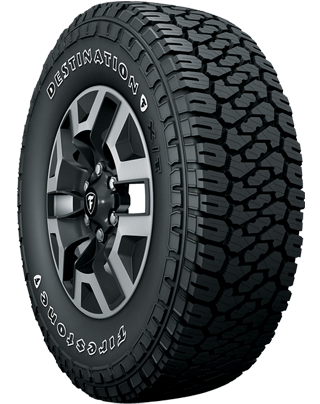
- Gold Pledge Limited Warranty
- All-Season
- Light Truck Tires

- No warranty
- All-Season
- Passenger Tires
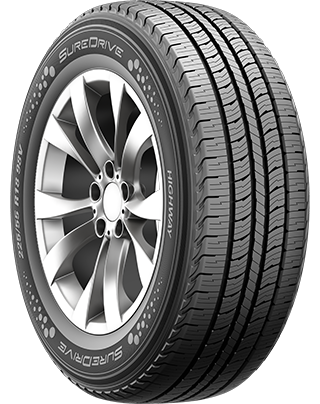
- No warranty
- All-Season
- Light Truck Tires
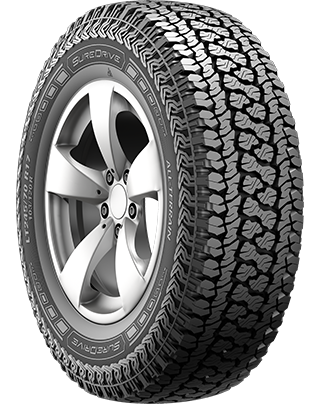
- No warranty
- All-Season
- Light Truck Tires
 Extensa A/S II
Extensa A/S II

- No warranty
- All-Season
- Passenger Tires
 OPEN COUNTRY A/T III
OPEN COUNTRY A/T III
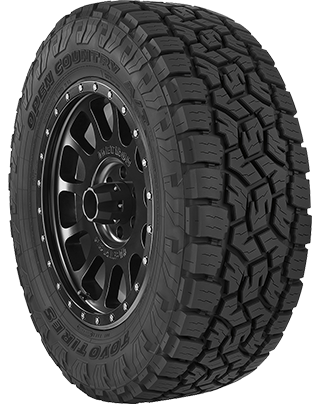
- No warranty
- All-Season
- Light Truck Tires
 OPEN COUNTRY M/T
OPEN COUNTRY M/T
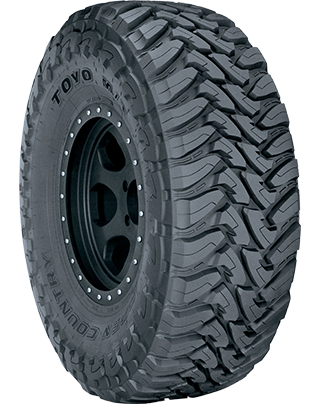
- No warranty
- All-Season
- Light Truck Tires
 OPEN COUNTRY R/T
OPEN COUNTRY R/T
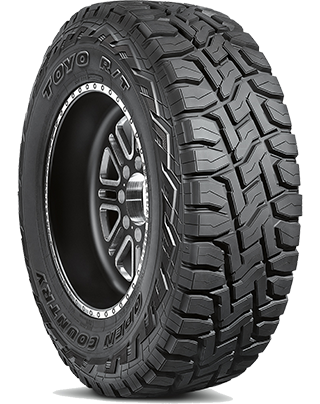
- No warranty
- All-Season
- Light Truck Tires
1989 Toyota 4Runner Tire Information
Beyond the correct tire size, there are a couple of other factors to consider when buying Toyota 4Runner tires like which tire brands you like most and where you drive. When evaluating your driving conditions, think about where you live (countryside vs. city vs. mountains) and the kind of unexpected weather you're likely to experience. Many drivers who live in states that experience all four seasons choose to purchase two sets of tires: one for winter and one for summer. Other drivers prefer to purchase one all-season set to limit trips to the tire shop and make sure their vehicle is prepared in the rain, sleet, snow, or sun!
Driving style is next on the list to think about when buying tires. If you're a diehard off-roader, you have very different tire needs than a highway commuter who doesn't leave the paved path. Visit your local Firestone Complete Auto Care for help selecting the tire that's right for you, or get started by browsing tires that fit your Toyota 4Runner.
1989 Toyota 4Runner Tire Installation & Rotation
We sell tires, but we also service them and care for all the around-the-wheel components. We're your one-stop shop for tire installation, rotation, and ongoing maintenance! Buy 1989 Toyota 4Runner tires online and schedule your installation when it's convenient for you.
1989 Toyota 4Runner Tire Questions
-
Why does Toyota tire inflation matter? Even a tiny decrease in tire pressure could impact your safety and fuel economy. Maintaining proper tire pressure can help increase fuel economy, improve braking time, and boost tire lifespan.
-
What do the numbers on my Toyota 4Runner tires mean? Your tire sidewall numbers tell you the recommended load carrying capacity, speed rating, treadwear, traction, and tire size. Talk to a tire technician to learn how to read Toyota tire numbers.
-
How do I check the tread depth on my Toyota tires? Stay on top of your tire tread depth to help avoid a dangerous drive. You can check tread depth with a penny. Hold the penny so that Abraham Lincoln is facing you, then place your penny into a tread groove upside down. If you can see the top of Abe’s head, your tread is shallow and it might be time for new Toyota 4Runner tires. Grab a penny. Hold the so that Abe Lincon's head is facing you and his hair is pointing toward the ground. Then, place the penny into a tread groove. If you can see the top of Abe’s head, your tread is shallow and it might be time for new Toyota 4Runner tires.
Repair Services for Your 1989 Toyota 4Runner
Want more details? Choose a service below to read more about Toyota 4Runner repairs at Firestone Complete Auto Care.
1989 Toyota 4Runner Repair Information
For most drivers, the words “car repair” don’t exactly spark excitement. But at Firestone Complete Auto Care, we strive to give you the excellent repair experience you deserve. When you come to us for 1989 Toyota 4Runner repair services, our skilled repair technicians will get your 4Runner back on the road. We’ll start by assessing what repairs may be needed, and we’ll provide you with a detailed explanation of what we recommend. If a repair isn't necessary, we won't recommend it.
What Will Toyota 4Runner Repairs Cost?
The cost to repair your 1989 Toyota 4Runner depends on which repairs are needed, the cost of any replacement parts, the labor involved, and the state you live in. No matter what state you’re in, be sure to look through our offers and online coupons for repairs.
A few different aspects can influence repair costs for your 1989 Toyota 4Runner, like
1989 Toyota 4Runner Auto Repair Questions
-
Do I need to follow Toyota's maintenance schedule? Don’t neglect scheduled maintenance. Sure, you could skip out on a few recommended maintenance services, but you may pay the price later. Bring your vehicle to Firestone Complete Auto Care at recommended service intervals to address minor issues before they get out of hand and keep your car running newer, longer.
-
What's wrong if something feels 'off' in my Toyota? You’re in your car, day in and day out. So, it’s only expected that you know your car better than anyone else! If you notice mysterious smells, strange engine noises, or other out-of-the-ordinary symptoms while driving, trust your instincts and stop into Firestone Complete Auto Care for a Courtesy Check. Catching a potential issue early could help prevent Toyota 4Runner repairs.
-
Are the repairs you recommend for my Toyota actually needed? Talk to your technician. We'll never recommend a service or repair for your 1989 Toyota 4Runner that we don't think is necessary for your safety.
Brake Repair for Your 1989 Toyota 4Runner
Your Toyota 4Runner engine may be strong and reliable. But if you can’t brake, it might as well be scrap metal. If you’re experiencing squeaky brakes or a loss of braking power, don’t wait! Unresponsive brakes make it tough to give the road your best. Plus, ignoring your brake problems can result in more damage and higher brake repair bills. Visit Firestone Complete Auto Care for the right brake repair for your 1989 Toyota 4Runner. We offer a variety of brake services like brake pad/shoe replacement, brake rotor/drum refinishing, brake fluid exchange/bleeding, and brake caliper and wheel cylinder service.
Answers to Your 4Runner Brakes Questions
-
Why does my 4Runner shake when I brake? Feeling shaking or vibrating in your 4Runner as you brake might indicate a few different problems, including worn brake pads or rotors, loose suspension components, damaged brake calipers, or warped rotors. Book an appointment for a free brake inspection as soon as you notice a problem with your brakes.
-
What is the average lifespan of 4Runner brake pads? Brake pads typically last about 30,000 to 40,000 miles. However, driving conditions can affect this range. Sticking to highway driving and braking smoothly can help extend the life of your brake pads, while towing heavy loads or frequently riding your brakes can shorten it.
-
Should my 4Runner be leaking brake fluid when the car is off? Your 4Runner brake system is a closed hydraulic system, so a brake fluid leak likely means you have an issue in your brake system. Over time, brake components can wear out or get damaged, causing a brake fluid leak.
1989 Toyota 4Runner Drivetrain Repairs
You don't want to go to just anyone for drivetrain repair. Drivetrains for front, rear, and all-wheel-drive and 4WD vehicles are all different. You want to visit Firestone Complete Auto Care. We can help repair all of your 1989 Toyota 4Runner drivetrain components Your 4Runner might need driveshaft repair if you notice heavy vibrations in your floorboards, clunks when shifting, resistance when turning, or vibration as your vehicle accelerates.
Questions About 1989 Toyota 4Runner
-
What are signs my Toyota drivetrain is damaged? Hear noises toward the back of your Toyota 4Runner? See fluid leaking? Having issues turning? These could all be signs of drivetrain damage you don't want to ignore. Take action quickly to catch repairs or replacements before something more severe happens.
-
What causes a 4Runner’s malfunction indicator light (MIL) to illuminate? A multitude of problems can activate your 4Runner’s malfunction indicator light (better known as the check engine light), including issues with the engine, transmission, sensors, electrical system, or connectors.
-
How worried should I be about a drivetrain malfunction in my 4Runner? Don't ignore a drivetrain malfunction in your 4Runner. As soon as you notice a problem, have it checked by a professional mechanic to diagnose the issue and carry out any necessary repairs. Driving with a faulty drivetrain is risky and may further damage your 4Runner.
1989 Toyota 4Runner Alignment Services
Alignment services involve precise adjustments to your Toyota 4Runner’s suspension system, which serves to attach your wheels to your vehicle. In an alignment service, the individual angles of your tires are adjusted so that they come into contact with the road in just the right way — the way Toyota intended them to. Bring your 1989 Toyota 4Runner in for a wheel alignment and we'll start with an alignment check. After that, we can adjust your wheel alignment angles until they match Toyota’s recommended measurements.
Questions About Toyota 4Runner Alignment
-
How can I avoid knocking my Toyota 4Runner out of alignment? Potholes and uneven roads can knock your car out of alignment, so stay aware of the road ahead and adjust your speed (or avoid these obstacles whenever it’s safely possible).
-
How often does your 4Runner need a wheel alignment? Check your 4Runner owner's manual for Toyota's recommended interval. It's generally a good idea to check your alignment every 6,000 miles or 6 months, depending on which comes first.
-
Do you need to get your 4Runner wheels aligned? You likely aren't required to get an alignment when you put new tires on your 4Runner, but it's a super smart idea! An alignment can help ensure optimal tire wear, fuel efficiency, and handling. Still, you should reference your 4Runner owner’s manual for what’s recommended.
1989 Toyota 4Runner Engine Repair
If your 1989 4Runner engine needs repairs, our expert techs will let you know what needs to be done and why before they get started. We don't start working until we have your approval. If a repair can wait, we'll let you know. We'll also tell you if it's necessary for your safety. We want to provide you with the information you need to make an informed engine repair decision. Turn to Firestone Complete Auto Care for your 1989 4Runner engine repairs and you can drive easy knowing that we use Toyota-approved parts and fluids — timing chain or belt, motor oil seal, sensors, or other parts.
Engine Q&A 1989 Toyota 4Runner
-
Why does the check engine light come on when I start my 4Runner? Generally, your check engine light turning on upon ignition is not a bad thing. It’s just your 4Runner firing up its circuits. The light should turn off in a bit, but come see us if it doesn't.
-
Are Toyota 4Runner engine noises bad? Strange under-the-hood noises can point to problems within your Toyota 4Runner engine. Tapping or knocking could mean you need an oil change. Whistling sounds could mean you have an intake leak or misaligned belt. Squealing may be caused by a loose fan belt, and grinding could be a sign that something is wrong with your brakes — not the engine.
-
Are you unknowingly damaging your Toyota 4Runner engine? Certain driving habits can hurt your engine. These habits include driving on an empty fuel tank, revving your engine while the vehicle is in Park, or slamming the gas pedal while the engine is still cold. Steer clear of these habits to help protect engine performance and efficiency.
Tire Repair for Your 1989 Toyota 4Runner
If your 1989 Toyota 4Runner is in need of a tire inspection or possible flat tire repair, Firestone Complete Auto Care has your back. Our tire technicians can determine whether it's safe to plug and patch the tire, or whether it needs to be replaced. We’ll begin by taking a look at where the damage is, the type and extent of the tire damage, and how all of your tires are wearing.
If your 1989 Toyota 4Runner tire puncture can be repaired, the repair process is actually fairly simple: (1) Remove the tire from the wheel for inspection and repair, (2) use a filler to close up the puncture (this is to keep moisture from getting in), and (3) seal the inner liner with a repair unit to prevent air loss.
Frequently Asked Toyota 4Runner Tire Repair Questions
-
Can I drive my Toyota on a flat tire? A flat tire that’s not addressed can take a terrible toll on the rest of your car. Until you have it repaired or replaced, drive your 4Runner as little as possible to reduce your risk of damage to the wheels and alignment – or further damage to that already struggling tire!
-
Can I use an emergency/temporary sealant to fix my Toyota's flat tire? A temporary sealant may be able to help you get to a repair location safely. But temporary or emergency sealants could possibly damage TPMS sensors, and in some cases may even void the warranty on your Bridgestone or Firestone tires. If your tire needs extensive repair, sealant can add time and labor costs to the process.
-
What can cause 4Runner tires to keep losing air? Tire punctures, damaged wheels, and leaking valve stems are possible reasons for your 4Runner tires continuously losing air.
Maintenance for Your 1989 Toyota 4Runner
Take care of your Toyota 4Runner and it'll take care of you. With the right maintenance at the right time, your 4Runner has a good chance of hitting 200,000 miles or more.
About 1989 Toyota 4Runner Scheduled Maintenance
It can be overwhelming, but fortunately, there’s a resource that takes the guesswork out of routine 4Runner maintenance. Just follow your 1989 Toyota 4Runner maintenance schedule! This recommended maintenance schedule is written by the auto manufacturer, Toyota themselves. Driving conditions, climate variations, and other variables can affect which scheduled maintenance services you’ll need; in most cases, though, recommended maintenance will consist of services like tire rotations, vital fluid checks/exchanges, filter changes, brake pad replacement, and oil changes. Keeping up with routine service appointments is a great way to keep your 4Runner running for longer, keep you safer on the road, and help you avoid expensive repairs caused by 1989 Toyota 4Runner problems later.
Essential Maintenance to Keep Your 1989 Toyota 4Runner Running Newer, Longer
Bring your 1989 Toyota 4Runner to Firestone Complete Auto Care for factory-recommended maintenance services and an expert technician will begin by performing a Courtesy Check. The Courtesy Check helps us see what we’re working with under the hood, and allows us to alert you to any potential problems before they worsen. Every Courtesy Check will include a visual inspection of your 4Runner. We’ll check your head and tail lights, fluid levels, filters, tires (and their alignment!), and windshield wiper blades. We’ll also perform a free battery check to determine your battery’s charge level.
Firestone Complete Auto Care is the place to go for 1989 Toyota 4Runner maintenance. Don’t wait until something goes wrong with your car. Visit your nearest location for proactive maintenance today.
1989 Toyota 4Runner Maintenance Q&A
-
What do I do if I hit a pothole in my Toyota 4Runner? Check your car for pothole damage! If you’ve recently hit a pothole (or even if you don’t remember hitting one… they can be sneaky!) check your tire treads, tire sidewalls, and wheels for damage. Potholes can also knock your car out of alignment, so have your alignment checked if you suspect you’ve driven over a rough patch of road lately.
-
When should I switch my Toyota 4Runner to high mileage oil? Got 75,000+ miles on the odometer? Consider high mileage motor oil. High mileage oil is formulated to address the specific problems encountered by high mileage vehicles, or those with more than 75,000 miles. It can help reduce oil consumption, smoke, and emissions from older Toyota 4Runner engines.
-
Can Toyota dashboard warning lights wait? Don't ignore dashboard warning lights! Bring your Toyota 4Runner in for a diagnostic code scan as soon as a dashboard warning light flashes on, whether it's your check engine or battery light. Dashboard lights alert you to trouble under the hood.
Battery Size & Replacement for 1989 Toyota 4Runner
Not sure what battery to get for your Toyota 4Runner?
| Battery | Engine | Warranty | Cold Cranking Amps | |
|---|---|---|---|---|
| 25-1 | L4/2.4L | Replacement 24 months | Performance months | 550 |
| 24FT-5 | V6/3.0L | Replacement 24 months | Performance months | 600 |
1989 Toyota 4Runner Car Batteries
On average, auto batteries last anywhere from three to five years. You want to replace your 1989 Toyota 4Runner battery before it fails and leaves you stranded. Pay attention to clues that your battery is on its way out. A lagging starter, a blinking battery or check engine light, swollen battery case, corroded battery posts, or weak lights can all signal that your battery needs attention.
Or, you can get a complimentary battery check at your nearest Firestone Complete Auto Care. Drop in for a free battery check and, if needed, a replacement battery for your 1989 Toyota 4Runner. Car batteries are only one of our many strong suits. Our expert technicians understand Toyota service recommendations for 4Runner battery cold cranking amps and reserve capacity. Get help identifying the type and size of battery that fits your car perfectly, and schedule a weekday or weekend battery replacement service for your car.
Answers to Your Toyota 4Runner Car Battery Questions
-
Why won't my Toyota 4Runner battery stay charged? A battery that won't hold a charge is almost as good as dead. The battery might be old. Or, you may have a habit of leaving your car doors open and the lights on overnight. Stop by for a free battery test at your local Firestone Complete Auto Care to learn more about the state of your battery.
-
How long do car batteries last? Car battery lifespan varies depending on a few factors, including driving conditions, accessories, how well it’s maintained, and the type of battery. On average, a car battery lasts about three to five years.
-
What is the white, crusty stuff around my 4Runner’s battery post? The white, flaky stuff that can build up around your 4Runner’s battery terminals is known as corrosion. Acid leaking from your vehicle’s battery post can have a chemical reaction with the air, leading to an accumulation of the white, powdery substance over time. Corrosion can affect the flow of electricity between your battery and the electrical system in your 4Runner, possibly causing issues with electrical performance and starting. If left unaddressed for long enough, it may even cause your battery to prematurely fail.
1989 Toyota 4Runner Oil Changes
Your 1989 4Runner’s oil should be changed according to Toyota’s recommended oil change intervals. Your 4Runner may need an oil change right away if your check engine/oil change light is on, you hear knock knock knock coming from the engine, smell oil inside the car, or see an excess amount of vehicle exhaust. You may also need an oil change more frequently than Toyota recommends if you haul heavy loads, drive in dusty terrain, enjoy off-roading, or go long distances at low speeds.
Your local Firestone Complete Auto Care has the right 1989 Toyota 4Runner motor oil: either synthetic or conventional. Consult Toyota's recommendations to select the right 1989 4Runner oil and talk with a teammate to learn more about our oil options: Quaker State® Advanced Durability™ conventional oil, Pennzoil® High Mileage Vehicle® motor oil, Pennzoil Platinum® Full Synthetic motor oil with PurePlus™ Technology, and Shell Rotella® heavy-duty engine oil. During your oil change service, one of our techs will change your 4Runner’s oil, replace and recycle your used oil and oil filter, inspect all of your other filters, refill vital car fluids, and perform a courtesy inspection on your entire vehicle. Let the experts take care of your 4Runner’s engine by making an oil change appointment today.
1989 Toyota 4Runner Oil Change Questions
-
Why is the oil light on in my Toyota 4Runner? Your Toyota 4Runner oil change reminder light might illuminate if it’s been too long since your last oil change. On the other hand, the oil pressure light might illuminate due to a clogged oil filter, a faulty oil pressure sensor, low engine oil levels, or a malfunctioning oil pump.
-
Can I change my Toyota oil on my own? Changing engine oil at home isn’t as simple as it’s made out to be. You’ll have to figure out how to properly dispose of the oil and buy special tools. Having your oil changed professionally can not only reduce the risk of something going wrong during the service, but it’ll also help your car perform smoothly down the road.
-
Why is my Toyota 4Runner exhaust smoke grayish or blue? Your engine could be burning oil due to a leak. It may be time for a pro to take a look. A leak can be caused by a variety of issues including faulty valve seals, blown piston rings, or damaged cylinder walls.
Engine Tune-Up Service for Your 1989 Toyota 4Runner
Regular engine tune-ups can optimize your 4Runner’s power on the road. Your nearest Firestone Complete Auto Care location has several options to choose from when it comes to Toyota 4Runner engine tune-up services. The standard Firestone Tune-Up is one service option. It includes a complete visual inspection of engine components, installation of new spark plugs, and a lifetime warranty on parts*. Another service option pays special attention to the filters in your 4Runner. Specifically, we replace the fuel filter and air filter. Our third service is a thorough cleaning of the fuel system. During this type of tune-up, we use a three-step process to get rid of harmful varnish, dirt, and carbon deposit buildup in your 4Runner’s fuel injectors, throttle body, and throttle plate. This can improve your fuel system’s performance (and therefore, your engine’s performance). Consider this when choosing a tune-up service for your 4Runner: your vehicle’s maintenance record and mileage can determine which service is best. Ask one of our technicians what your vehicle needs, based on your driving habits and your car’s current condition.
*Ask a Firestone Complete Auto Care teammate about full terms and conditions for warranties.
Questions About 1989 Toyota 4Runner Engine Tune-Ups
-
What happens if my Toyota 4Runner spark plugs fail? Replace spark plugs on time or about every 30,000 miles or so. Spark plugs are small but mighty. The spark of electricity that the plug emits across a small gap creates the ignition for the combustion needed to start your car. Without that spark, your car won't start.
-
What should I do if I see leaks under my 4Runner? Puddles could indicate that your vehicle is leaking coolant, oil, or brake fluid. Ignoring these leaks can lead to permanent engine damage, so address these symptoms ASAP with a tune-up service.
-
How often do Toyota 4Runner fuel injectors need to be cleaned? The cleaning schedule for vehicle fuel injectors varies depending on your driving conditions and the type of fuel you use. Some manufacturers suggest cleaning your fuel system as part of routine maintenance, while others will recommend it on an as-needed basis if you’re experiencing poor performance. Reference your Toyota owner’s manual for exact guidelines.
1989 4Runner Toyota Steering & Suspension Services
During the first few years you had your 1989 Toyota 4Runner, you and your passengers probably enjoyed a ride that was smooth and balanced. Lately, though, your ride’s been feeling a little bumpy. Maybe your 4Runner jolts, leans to one side, or makes noise whenever you turn or drive over a speed bump. The first sign of trouble is the best time to bring your 1989 Toyota 4Runner in for steering and suspension services. We’ll get to the source of your car problems and, if steering and suspension service is needed, we'll explain all of your options and the potential cost.
1989 4Runner Steering & Suspension Q&A
-
Why is my Toyota 4Runner bouncing so much? Excessive bouncing in your Toyota 4Runner might be due to damaged struts or shocks that are unable to absorb road bumps effectively, causing your vehicle to feel more like a pogo stick than a smooth ride.
-
What can cause the front end of my 4Runner to dip forward when I apply the brakes? The forward momentum and weight transfer to the front wheels during braking can cause your 4Runner's front end to dip forward. A damaged or faulty suspension system may fail to distribute the weight and force effectively, causing the front end to dip even more.
-
Does treadwear and tire pressure impact my 4Runner's steering and suspension? Maintaining your tires can help reduce strain on the suspension, nd also let you know when it's time to replace your tires. A faltering steering and suspension system could lead to uneven tire wear.
1989 Toyota 4Runner A/C Service Near You
Our trained technicians will do what they can to solve your 1989 Toyota 4Runner A/C problems. In this A/C performance inspection, we’ll check out the current condition of your 1989 Toyota 4Runner A/C system to determine whether repair work is needed. We’ll test overall system performance, check for any leaks, and measure the system pressure.
Let's say we repair your 1989 Toyota 4Runner A/C system. We will also perform an A/C evacuation and recharge. During this process, a technician will remove the old refrigerant from the A/C system. Then, they’ll use Toyota’s specifications to evacuate the system. The A/C system is recharged with new refrigerant.
Questions About 1989 Toyota 4Runner A/C Systems
-
What’s making my 4Runner A/C put out warm air? An A/C blowing hot air has several possible root causes. There could be an issue with your compressor clutch, a blown fuse, a leak, or a clog in the expansion valve.
-
How does my A/C system get a leak? A/C system leaks are often due to a combination of age and moisture. Rubber seals and gaskets naturally degrade over time, allowing refrigerant to exit and moisture to enter your 4Runner's A/C system.
-
What is causing my 4Runner’s A/C to only work when the car is in motion? A problem with one or more of your air conditioning or electrical system components could cause the A/C to only work when your 4Runner is moving. You may be low on refrigerant, or the cooling fan could be faulty.
1989 Toyota 4Runner Transmission Service & Repairs
The transmission delivers power from the engine to the wheels so that you can drive on your terms. Because your transmission is responsible for converting the right amount of power into the right amount of speed, even the smallest transmission problems should be addressed right away. 1989 Toyota 4Runner transmission problems can show up as shifting delays, grinding or jumping during acceleration, a feeling of shakiness, or whistling noises and a burning smell coming from under the hood. Let Toyota 4Runner transmission problems linger and you might notice your fuel economy decrease or find that your 4Runner isn’t working at all. Our expert techs are familiar with 1989 4Runner services and perform them according to Toyota-recommended specifications. Schedule an appointment at your local Firestone Complete Auto Care at the first sign of transmission problems to help keep your engine running at peak performance.
1989 Toyota 4Runner Transmission Questions & Answers
-
Does my 4Runner's transmission fluid need to be inspected? Regularly checking and exchanging your 1989 4Runner’s transmission fluid is one of the best ways to help the transmission system perform. Some technicians would say that between 30,000 and 60,000 miles is a good timeframe for having your Toyota's transmission fluid checked and replaced, but that timeline can vary depending on how your vehicle is used and your manufacturer’s recommendations. The good news is that transmission fluid leaks are affordable to repair and easy to spot.
-
Can Toyota 4Runner transmission fluid leak? Over time, transmission fluid can leak from your Toyota 4Runner, potentially causing transmission problems. A transmission fluid leak may be caused by a damaged transmission pan, faulty transmission cooler lines, worn-out seals, a cracked transmission housing, or an overfilled transmission.
-
Can I drive my Toyota 4Runner with a transmission fluid leak? You should avoid driving with a transmission fluid leak. Your transmission system relies on transmission fluid to operate properly, and a leak may decrease performance, cause your 4Runner to overheat, or even lead to transmission failure.
Vehicle Inspection for 1989 Toyota 4Runner
When you bring your vehicle to Firestone Complete Auto Care for any service, we’ll automatically do a multi-point Courtesy Check. First, a technician will pop the hood on your Toyota 4Runner and test the battery to determine how much charge remains. After we’ve inspected your Toyota 4Runner’s battery, we’ll visually inspect your filters, lights, wiper blades, alignment, tires, hoses, belts and fluid levels.
We perform a Courtesy Check any time you bring your car to a local Firestone Complete Auto Care for service, but we also offer an in-depth Complete Vehicle Inspection for your 1989 Toyota 4Runner. A Complete Vehicle Inspection includes everything in a Courtesy Check, plus a thorough manual inspection of your steering and suspension system, brakes, and exhaust components. The goal of this type of inspection is to unearth significant issues that might require preventative maintenance.
In some cities or states, your local Firestone Complete Auto Care may be able to perform state-mandated inspections or safety tests on your vehicle. Specific requirements for these types of inspections vary by state.
Common 1989 Toyota 4Runner Vehicle Inspection Questions
-
When does my Toyota 4Runner need an inspection? If you’ve noticed something that doesn’t feel quite right in your car lately, a Courtesy Check could give you peace of mind. We can help you get to the bottom of strange engine noises, a jerky steering wheel, or an engine that's hard to start.
-
Can you fix my 1989 Toyota 4Runner so it will pass a state inspection test? There's a good chance we can. Stop by for a full system inspection and we'll get to the root of the issue.
-
When’s the best time to have a complete vehicle inspection performed on my Toyota 4Runner? It’s generally a good idea to get a complete vehicle inspection for your Toyota 4Runner before a road trip and/or when something strange occurs and you are unable to find the cause. Signs something is up include dashboard lights illuminating, odd noises coming from the engine, and your steering feeling loose or tight.
1989 Toyota 4Runner Radiator Repair & Service
Keeping up with regular radiator maintenance in your 1989 Toyota 4Runner is crucial to keep your engine in the best possible shape for years to come. In fact, Toyota recommends replacing coolant/antifreeze at specific intervals, but it’s also wise to keep an eye out for signs of a failing radiator. You might be driving around (or about to be stranded) with a failing radiator if you see coolant leaks under your car, high engine temperatures, or a dashboard light that indicates low coolant.
At Firestone Complete Auto Care, we start by performing a thorough inspection of your Toyota 4Runner cooling system. Then, we’ll move on to a machine-powered coolant exchange. Finally, we’ll refill the flushed sealants, lubricants and chemicals, then do a pressure check to catch any possible leaks. When it comes to radiator service and repair, we’ll take excellent care of your 1989 Toyota 4Runner at Firestone Complete Auto Care.
Common Toyota 4Runner Radiator Questions
-
What does an illuminated coolant temperature light mean for my Toyota? Your engine might be about to overheat. If your low coolant light is on, pull over in a safe area and wait for your engine temperature to go down. Once it’s safe to do so, bring your car to your nearest Firestone Complete Auto Care to have the coolant system inspected.
-
My 4Runner overheated! What can cause that? Your Toyota 4Runner engine could overheat due to low coolant, a clogged radiator, a damaged water pump, a malfunctioning cooling fan, or a faulty thermostat.
-
What can cause a 4Runner radiator to make boiling or rumbling sounds? Your 4Runner’s cooling system could contain air pockets or your radiator might be clogged. Another possibility is a faulty radiator cap, which is an easy fix!